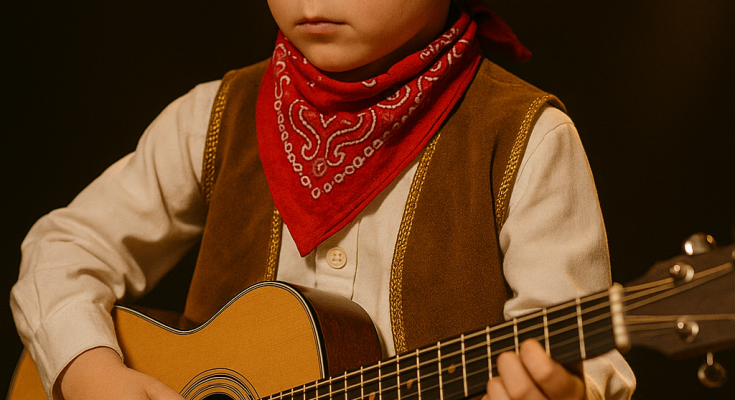It was supposed to be just another school talent show—parents chatting, teachers clapping politely, and kids nervously taking the stage for songs, poems, or clumsy dance routines. But all that changed the moment a tiny first-grader stepped into the spotlight. Small in stature, with oversized eyes and a microphone almost as big as his hands, he stood quietly while the audience settled into their seats, expecting little more than a cute performance.
Then the unmistakable twang of Johnny Cash’s “Folsom Prison Blues” began to play—and the room froze.
From the very first note, the boy’s voice stunned the crowd. It wasn’t the sweet, high-pitched sound you’d expect from a six-year-old. No, this voice was deep, soulful, and shockingly powerful. He didn’t just sing—he channeled the spirit of Cash himself. With every lyric, he delivered emotion and grit that felt like it came from a life far longer than his own. People leaned forward in disbelief, jaws slack, eyes wide. Was this really happening?
The more he sang, the more the energy in the room grew. It wasn’t just talent—it was presence. He hit each note with confidence and conviction, like he’d been performing for decades. The audience, once skeptical, was now completely mesmerized.
By the final line, the auditorium erupted. Cheers, whistles, and thunderous applause filled the space as the little boy smiled, soaking in a standing ovation that lasted longer than his entire song. Teachers were wiping their eyes. Parents exchanged glances that said, “Did you just see that?”
He walked off the stage a star. No confetti, no fireworks—but a moment so electric, so unforgettable, that it would be talked about long after the school year ended. That night, a first-grader did more than sing a song. He proved that sometimes, the smallest voices carry the biggest surprises—and leave the loudest echoes behind.




